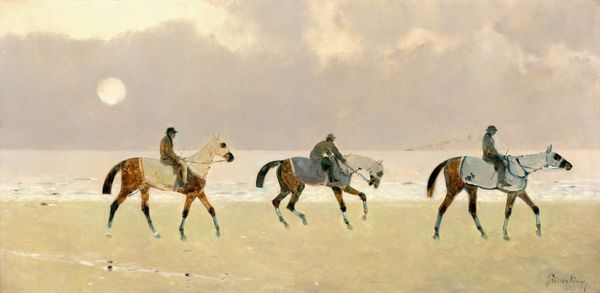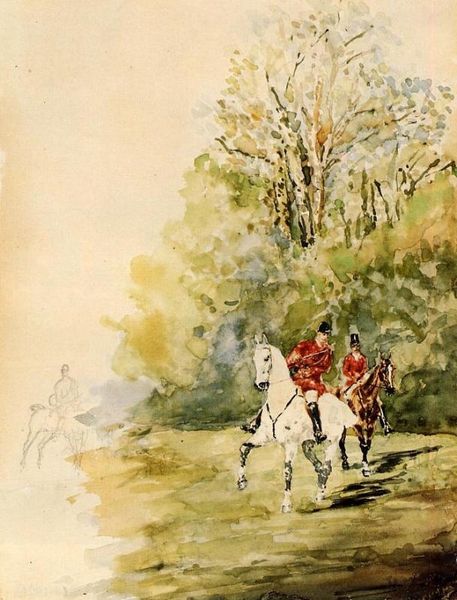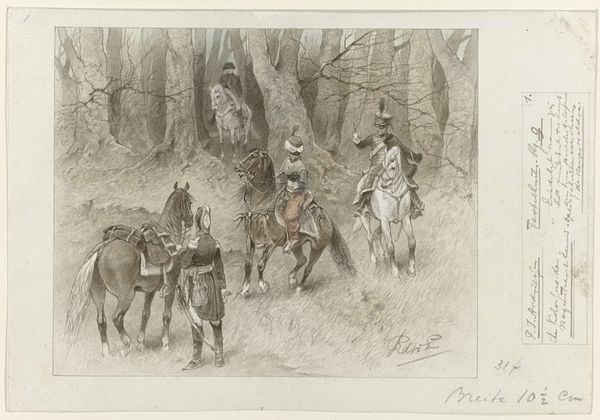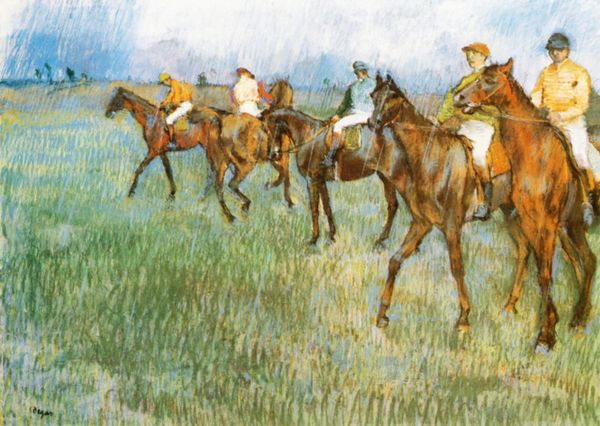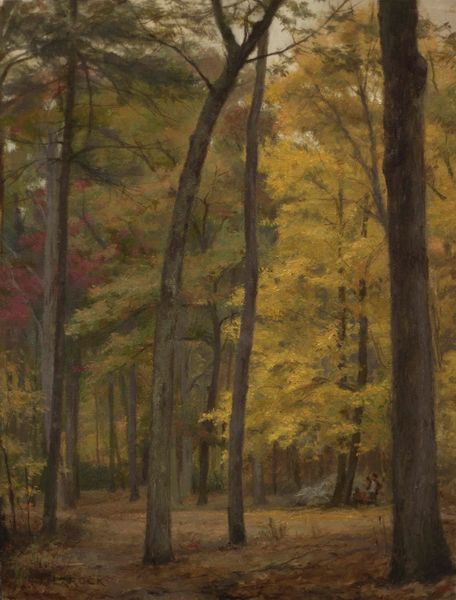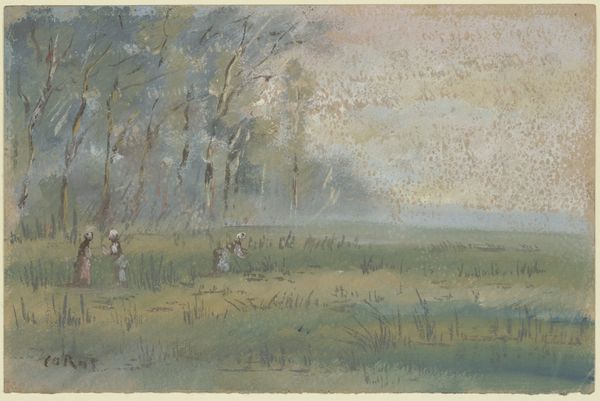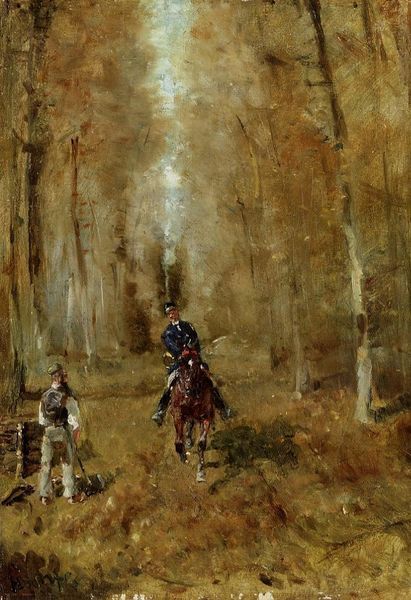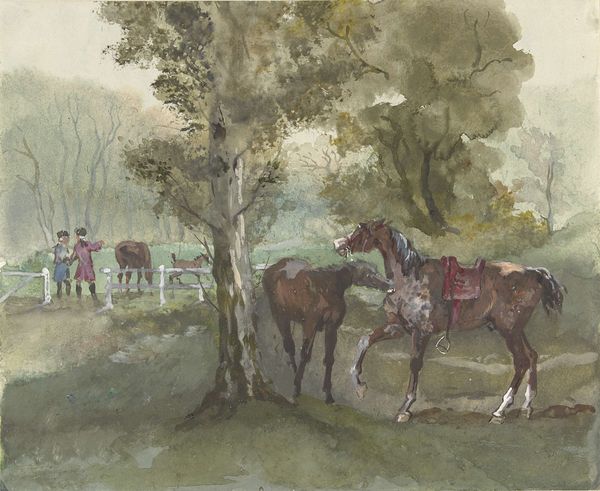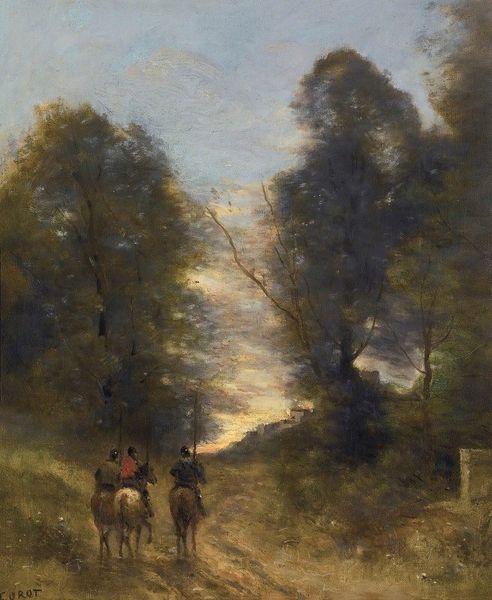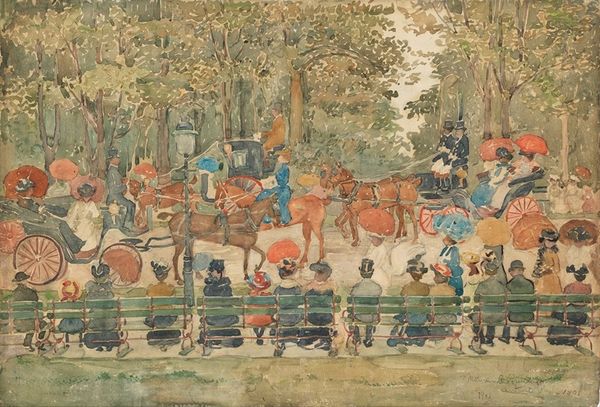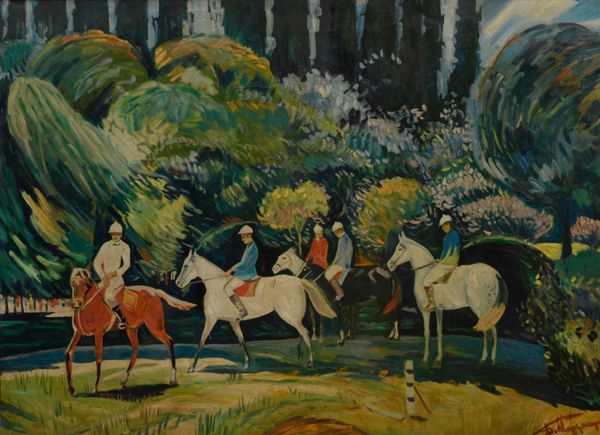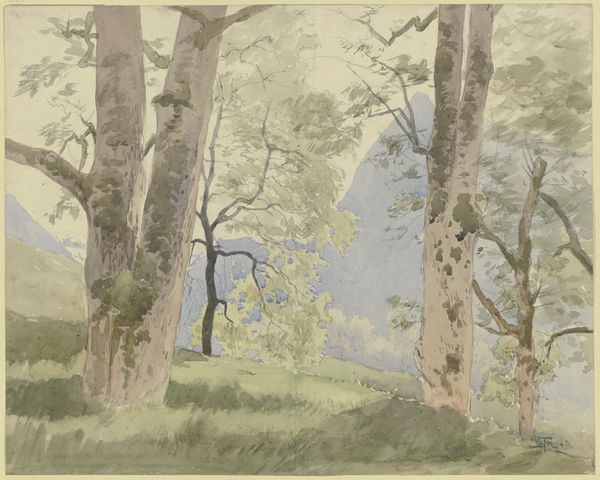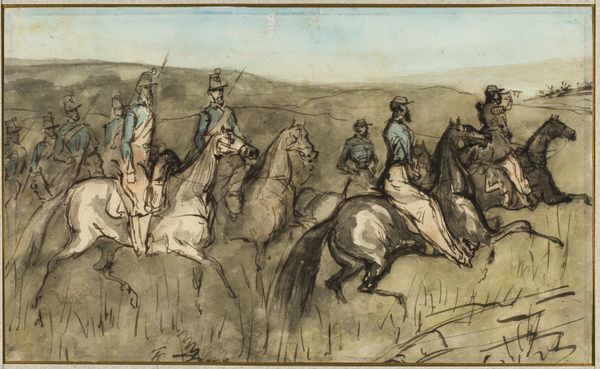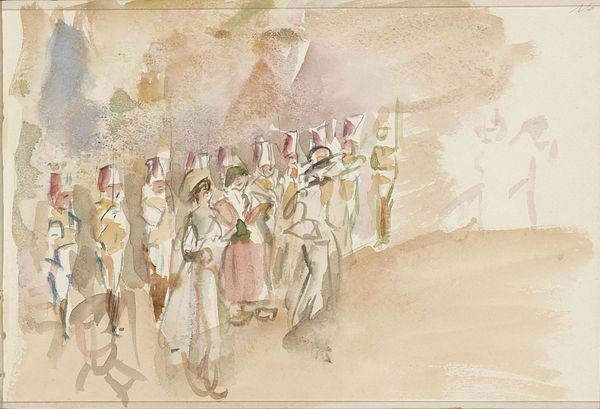
#
landscape illustration sketch
#
possibly oil pastel
#
forest
#
green background
#
botanical drawing
#
greenery
#
watercolour illustration
#
botanical art
#
watercolor
#
warm toned green
#
environment sketch
Dimensions: height 81 mm, width 103 mm
Copyright: Rijks Museum: Open Domain
Editor: This is Jules Baron Finot's "Boslandschap met ruiters," or "Woodland Landscape with Riders," created in 1881. It looks like a watercolor, maybe even an oil pastel sketch, and has a very dreamlike quality. What stands out to you? Curator: The interesting thing here, looking at the materials, is the way Finot utilizes watercolor, traditionally a 'lower' art form than oils, to depict an aristocratic scene. We see figures engaged in leisure, riding through a landscape that, presumably, is there for their enjoyment. It pushes the question of art’s relationship with social class and leisure. What does the use of an accessible material, like watercolor, do to this kind of imagery? Editor: So, it’s about the accessibility of the materials versus the exclusivity of the subject? Is it a critique, then? Curator: Not necessarily a direct critique, but certainly food for thought. Watercolour as a readily available medium brings up the idea that, while the scene depicts the privileged, the means to represent it, the material, is more common. It's about democratizing the image through material, challenging the traditional separation of high art and… everyday practice. Editor: That makes so much sense. The ephemeral nature of watercolor seems to contrast so much with the solid presence suggested by the riders in this scene. Curator: Precisely. Consider, too, how easily a watercolor sketch could be reproduced. It could reach a far wider audience than the actual events it portrays. The mode of production inherently speaks to access and distribution, subverting what is usually the privilege of the few. Editor: So by examining the 'how' of the artwork, it gives us insight into a whole world of social context. I hadn't considered that. Curator: Absolutely. It moves us away from just looking at pretty pictures, to thinking about how materials and making inform meaning and can reveal the often hidden power dynamics in art. Editor: I'll never look at watercolors the same way.
Comments
No comments
Be the first to comment and join the conversation on the ultimate creative platform.
